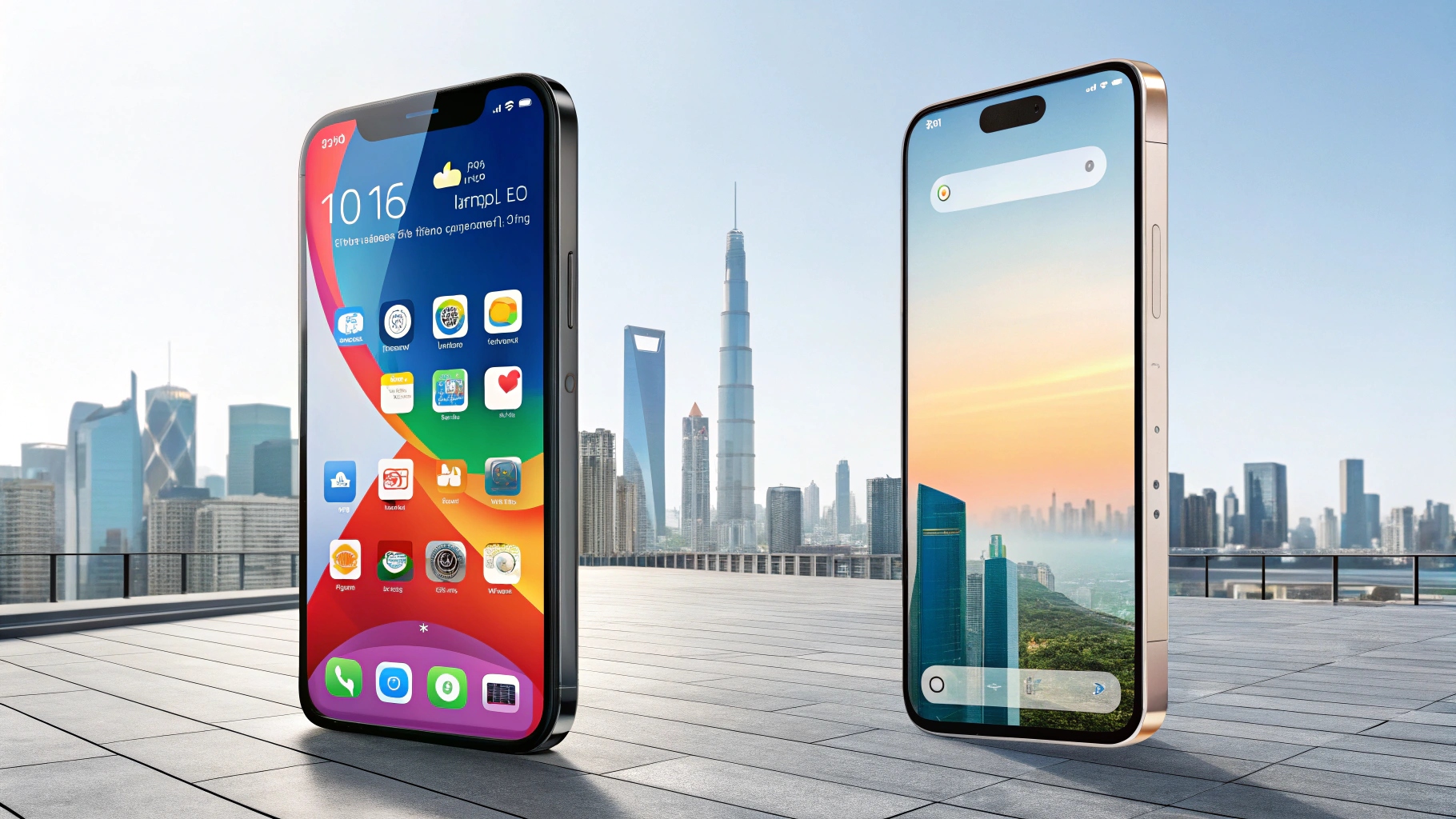Introduction: Apple vs. Google – A New Chapter
With the launch of iOS 18 and Android 15, the rivalry between Apple and Google has entered a new phase. Both operating systems bring powerful new features focused on AI, privacy, customization, and performance. But which one truly stands out in 2025?
- Introduction: Apple vs. Google – A New Chapter
- User Interface and Design
- AI Features and Smart Assistants
- Privacy and Security Enhancements
- Customization and User Control
- App Ecosystem and Developer Support
- Performance and Battery Life
- Device Compatibility and Updates
- Pros and Cons Summary
- Conclusion: Which OS Should You Choose?
User Interface and Design
iOS 18 continues Apple’s tradition of clean, minimalistic design with smoother animations and better accessibility features. The Control Center is now customizable, and widgets have become more interactive.
Android 15, on the other hand, leans into Material You 2.0 with deeper personalization. Users can now fully theme their UI based on images, mood, or time of day. Android still leads in flexibility and home screen customization.
AI Features and Smart Assistants
Apple has integrated generative AI across the OS with “Apple Intelligence.” Siri now handles complex tasks, summarizes articles, and drafts emails more naturally.
Android 15, powered by Gemini AI, is more open. Google Assistant now integrates with third-party apps better and offers real-time translation, smart replies, and even image generation natively.
Privacy and Security Enhancements
iOS 18 doubles down on privacy with features like locked apps, Face ID for private folders, and improved app tracking transparency. On-device processing of AI tasks ensures data doesn’t leave the iPhone.
Android 15 has made significant progress with granular permissions, encrypted backups, and “Private Space” — a new hidden area for sensitive apps and files. Google is closing the privacy gap, but Apple still leads in perception.
Customization and User Control
Android remains king in customization. From setting default apps to modifying gestures and UI elements, Android 15 is unmatched.
iOS 18 has improved with lock screen widgets, interactive wallpapers, and custom app icons. Still, it doesn’t match Android’s deep control.
App Ecosystem and Developer Support
iOS is known for its polished, optimized apps. Developers often launch on iOS first because of higher user spending.
Android offers a broader variety and more experimental apps due to its open nature. However, app quality can vary more across devices.
Performance and Battery Life
iOS 18 is optimized for Apple Silicon, especially A17 and M2 chips, delivering blazing performance and efficient power usage.
Android 15 works well on flagship devices like Pixel 9 and Galaxy S25, especially with Snapdragon 8 Gen 3. However, performance varies across manufacturers, which can impact consistency.
Device Compatibility and Updates
Apple offers iOS 18 even on older models like iPhone 11, ensuring long-term support.
Android 15 is available on most new phones, but older devices rely on OEMs for updates. Google’s Pixel line gets the best support, but fragmentation is still an issue.
Pros and Cons Summary
iOS 18 Pros:
- Better privacy features
- Smooth, stable performance
- Longer device support
iOS 18 Cons:
- Limited customization
- Closed ecosystem
Android 15 Pros:
- Unmatched customization
- More open and flexible
- Gemini AI features integrated across apps
Android 15 Cons:
- Inconsistent updates across devices
- Some features vary by manufacturer
Conclusion: Which OS Should You Choose?
If you value privacy, stability, and a premium app experience, iOS 18 is a strong choice. But if you prefer flexibility, deep personalization, and open innovation, Android 15 takes the lead. The best OS in 2025 depends on your needs — and both platforms have never been stronger.








